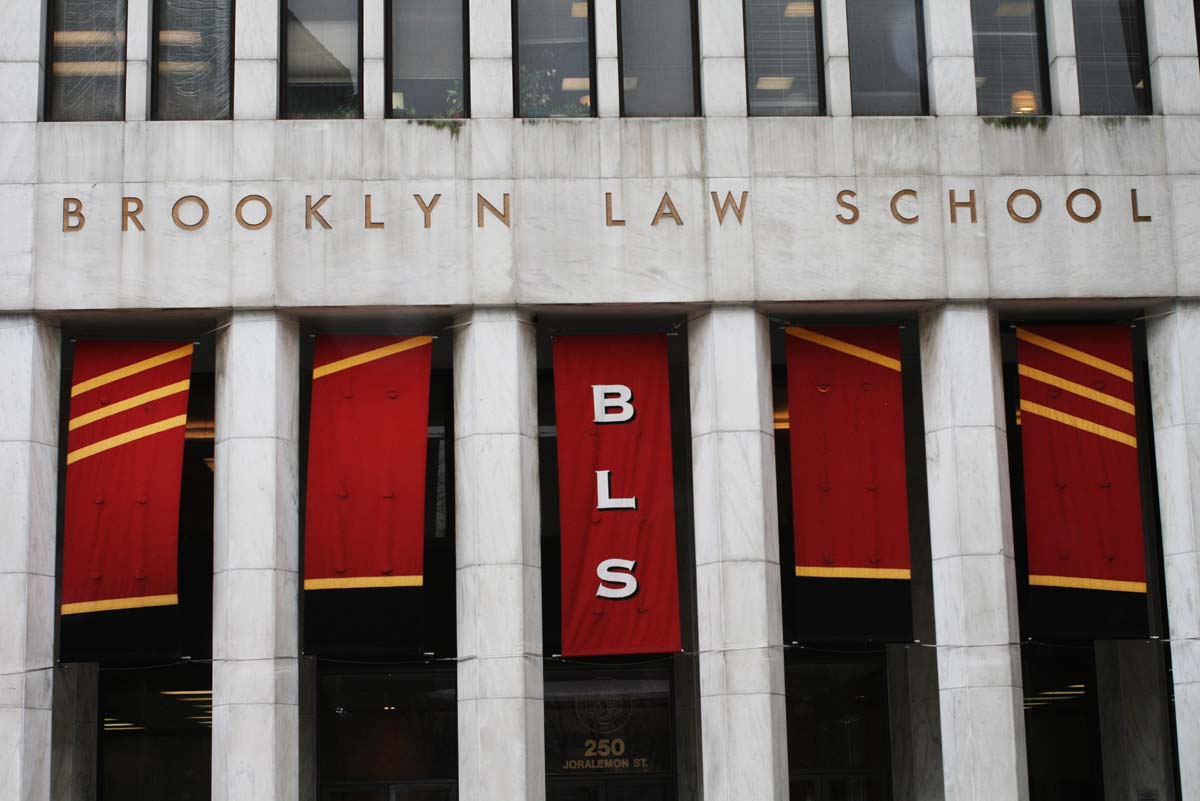Unless you’re a lawyer, the idea of technology making us all less reliant on attorneys probably sounds appealing. Who doesn’t want to spend less time talking to lawyers?
That said, it seemed that the more legal startups were discussed among attorneys at the CUBE event at Brooklyn Law School this Friday, the more convinced attorneys seemed to be that as technology takes some of the grunt work off their plates, that will only make the remaining work more interesting and deep.
The demos below took place at a symposium called “From Bleak House to Geek House.” It was organized by Prof. Jonathan Askin, of CUBE, which we wrote about here.
We liked these three companies that demo’ed legal hacks:

Phil Weiss, of NY Legal Hackers, which we’ve covered, introduces Matt Hall and John Watkinson, cofounders of Docracy. Technical surprises were occurring at the moment of this photo.
Docracy was on a list of local startups to watch and it led us to flagging their blog. The basic idea of Docracy is that anyone can upload legal documents to share them with the community. Other users can assess those documents. They can also adapt them and reshare new iterations of the document. The system tracks all those iterations in a helpful way.
This feature grew naturally from the fact that its two founders are both developers, not lawyers. As Matt Hall, cofounder, put it, “We’re not lawyers, but we’ve been to a lot of these conferences, so we’re pretty much lawyers.”
Another advantage of this feature: if you’ve ever feared that a contract has changed in some subtle way over the course of the negotiation, you wouldn’t have to worry about that if you worked through Docracy, which will redline any change.
One incentive that lawyers have to use Docracy (and, also, CaseText, below) is that it’s a good way to show off expertise. If you give away the very most basic kind of contract, for example, for a certain sort of law, then the people who use it early on may be more likely to go to you when they need something more substantive.

CaseText demo’ing via Skype from the West Coast.
It is tempting to say that CaseText is bringing the Wikipedia idea to the law, but, really, it’s more like Rap Genius for cases and other legal text. Anyone can come in and annotate cases, but the system makes it possible to highlight the background of commenters. Big law firms that want to be seen as the leaders on certain kind of law will annotate relevant cases to their market.
Ashcroft vs. Iqbal is a famous Supreme Court case in the system. The counsel for Iqbal, the losing side, has actually annotated the Supreme Court decision.
Another innovation they’ve developed: they find they can help users make a survey of a topic by tagging cases by the number of times they have been references. Highly referenced cases are more likely to be the ones users want when making a broad overview.
The system also allows relationships to be created between cases and even to create a sort of legal narrative, by laying out a series of cases in a specific order that the creator believes tells a story about a point of law.

Vinay Jain, Chief Legal Officer, ShakeLaw
Vinay Jain presented on behalf of ShakeLaw, a startup that uses an iOS app to enable users to make quick, legally binding agreements for simple agreements. A point made by both ShakeLaw and Docracy was that there is an ocean of low stakes, low risk agreements out there that aren’t worth a lawyer’s time but might benefit from setting down some kind of understanding.
ShakeLaw comes in there with a modular agreement builder, using effective legal language, but written in such a way that non-lawyers can understand what they are signing. It also avoids the trap of a lot of legal documents: devoting loads and loads of text to topics that hardly ever come up, especially in low stakes agreements.
Another feature of the ShakeLaw system is that it can generate reminders or other helpful feedback for both users, based on key thresholds or deadlines written into the agreement.
The app is free on iOS, but the agreements themselves might not be. It doesn’t address cost on their webpage.
Join the conversation!
Find news, events, jobs and people who share your interests on Technical.ly's open community Slack
